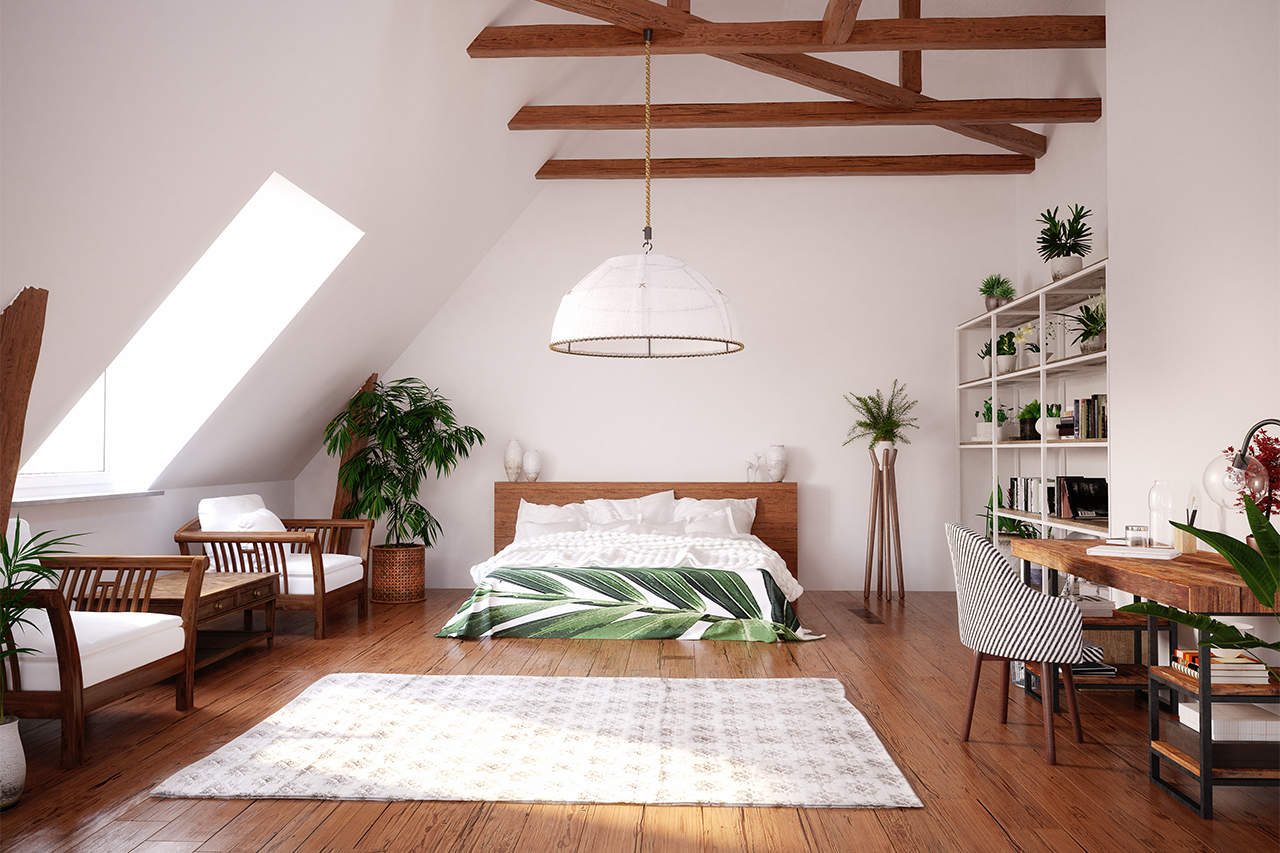
Planning a home addition? Discover what to expect during the process, including design choices, permits, construction timelines, and key factors that impact your project’s success.
The cost to build an in-law suite is $82,750 for most people, with a common range of $25,000 to $265,000. Get in contact with local pros for a unique estimate based on your needs.


It costs $100 to $200 per square foot on average to build an in-law suite.
Factors like location, size, construction type, and material quality impact the overall cost.
Converting existing spaces like basements or garages is often more cost-effective than building new additions.
An in-law suite can increase your property's value and provide space for family or potential rental income.
This article was created using automation technology and thoroughly fact-checked and edited by HomeAdvisor Editor Ryan Noonan.
The cost to build an in-law suite can range anywhere from $7,500 and $600,000, with most homeowners spending around $82,750. That’s an average of $100 to $200 per square foot. Factors like location, size, materials, and whether the suite is attached or detached from your home will affect the total price.
An in-law suite is a significant investment, but it creates a comfortable space for family members or generates rental income. To ensure your project is successful and complies with local regulations, it's essential to budget properly and hire a professional contractor.
The type of suite, size of the suite, materials, and local labor costs all impact the overall cost to build an in-law suite.
If you’re planning to have family members move into your home, you can convert existing rooms, including the basement or attic, into a functional suite. To add a rental property, you might consider turning your garage into an ADU or building a new structure.
| Addition Type | Average Cost Range |
|---|---|
| Converting a finished room | $10,150–$65,625 |
| Extending a room | $26,600–$54,800 |
| Adding a room | $40,000–$200,000 |
| Converting a garage | $20,000–$60,000 |
| Converting a basement | $10,000–$30,000 |
| Converting an attic | $25,000–$65,000 |
You can convert an existing, finished room in your home into an in-law suite for $10,150 to $65,625. This price includes adding a bathroom or building a kitchen, both essential for a fully functional in-law suite. Each of these additions starts at about $5,000. On average, installing new walls costs $1,800 per wall.
The cost to bump out a room for an in-law suite is $20,600 to $54,800. More than simply converting a room, an extension also involves expanding on the foundation at $75 per yard. You can expect excavating around the home’s perimeter to cost $2,600 on average. Extending a second-floor room costs more than a first-floor room.
If you aren't ready to dig up precious space in the backyard to build an ADU, consider converting existing unused parts of your home into an in-law suite. Keep in mind that each type of space needs drywall, insulation, flooring, HVAC, a water heater, plumbing, gas line or 220 outlet, private entrance, bathroom, and kitchenette to function as a separate dwelling.
Garage: You can convert a garage to an in-law suite for $20,000 to $60,000 since it already has a foundation.
Basement: You can remodel your basement into an in-law suite for as low as $10,000 to $30,000 by tapping into your home's existing plumbing.
Attic: Converting an attic costs $25,000 to $65,000 because you need to reinforce floor joists and install a safe stairway.
The cost to build an in-law suite ranges from $100 to $200 per square foot, including materials and labor. Here's what you can expect based on size:
| Addition by Square Footage | Cost Range |
|---|---|
| 100 | $10,000–$20,000 |
| 200 | $20,000–$40,000 |
| 300 | $30,000–$60,000 |
| 400 | $40,000–$80,000 |
| 500 | $50,000–$100,000 |
| 600 | $60,000–$120,000 |
| 750 | $75,000–$150,000 |
| 1,000 | $100,000–$200,000 |
| 2,000 | $200,000–$400,000 |
Building an in-law suite requires coordinating different types of professionals. Here are the primary pros involved, their costs, and common tasks.
| Professional Type | Average Labor Cost |
|---|---|
| Electrician | $50–$100 per hour |
| Plumber | $150–$275 per hour |
| HVAC | $100–$250 per hour |
| General contractor | $300–$500 per day |
You'll need electrical work for your new in-law suite, costing $50 to $100 per hour. Common electrical tasks include:
Electrical panel upgrades: $1,600
Rewiring: $6,000
Adding light fixtures: $500 each
Installing outlets: $300 each
Both the bathroom and kitchen of the suite will require new plumbing, and the bathroom must connect to the sewage system. Plumbers charge about $150 to $275 an hour for these intensive jobs:
Rough-in plumbing: $6,500
Installing a sink: $450
Water heater installation: $1,400
Sewer main installation: $3,500
Depending on the size of the space, HVAC (heating, ventilation, and air conditioning) can be a relatively inexpensive extension of your existing systems, or require the installation of a new system. A new HVAC system costs around $5,000 to $12,500 on average. HVAC pros charge $100 to $250 per hour.
“Many of our clients choose what is called a ‘mini-split’ system,” says Bob Tschudi, Expert Review Board member and Raleigh, NC-based general contractor. “These systems are great at heating and cooling smaller spaces and cost a fraction of a traditional HVAC system with ducts, vents, and air returns.”
Hire local addition and remodeling contractors for many parts of the process, such as building the structure, painting the interior and exterior, laying floors, and installing windows. You’ll have a general contractor oversee the entire project, costing about $300 to $500 per day. In addition, each additional laborer required for tasks such as building, installing, or painting costs $150 to $250 per day.
An in-law suite is similar to an apartment or tiny home, meaning you need many materials to build this structure inside and out. The material costs to build an addition will depend on your design choices.
| Material | Average Cost |
|---|---|
| Framing | $15–$32.50 per square foot |
| Drywall | $4–$6 per square foot |
| Insulation | $0.30–$1 per square foot |
| Foundation | $4–$16 per square foot |
| Plumbing | $15–$40 per square foot |
| Plumbing fixtures | $400–$2,000 per fixture |
| Wiring | $2–$4 per square foot |
| Roofing | $120–$400 per square foot |
| Siding | $12 per square foot |
| Windows | $100–$1,500 per window |
| Doors | $500–$5,000 each |
| Floors | $3.50–$21 per square foot |
You’ll have to pay for the same ongoing costs as you do for your home, which includes electricity, sewage, gas, and water. You’ll also have to consider things like internet access, phone service, and television. In addition, you have to keep the space clean and livable, so you’ll need to invest extra money into cleaning supplies on top of what you already use for your home.
On top of these costs, you’ll have to pay more in property taxes since you have more livable space on your land. If you rent the suite out when your family isn’t there, you’ll also have to pay rental income tax.
Your local general contractor and other pros involved can walk you through more of the specifics around these costs.
No place is more important than your home, which is why HomeAdvisor connects homeowners with local pros to transform their houses into homes they love. To help homeowners prepare for their next project, HomeAdvisor provides readers with accurate cost data and follows strict editorial guidelines. After a project is complete, we survey real customers about the costs to develop the pricing data you see, so you can make the best decisions for you and your home. We pair this data with research from reputable sources, including the U.S. Bureau of Labor Statistics, academic journals, market studies, and interviews with industry experts—all to ensure our prices reflect real-world projects.
From average costs to expert advice, get all the answers you need to get your job done.

Planning a home addition? Discover what to expect during the process, including design choices, permits, construction timelines, and key factors that impact your project’s success.

Looking to vault a ceiling? Here’s how much it costs, what factors affect cost, and what to expect.

Discover how much porcelain countertops cost to install based on factors such as their size, materials, add-ons, and local labor rates.

Budget for bedroom remodel costs based on factors such as bedroom size, remodel type, features, materials, labor, and more.

Use this guide to budget for kitchen island costs, including island style and shape, customizations, countertop options, professional labor, and more.

Budget for sunroom addition costs based on factors such as room type, site prep, professional labor, features, permits, prefab vs. custom designs, and more.